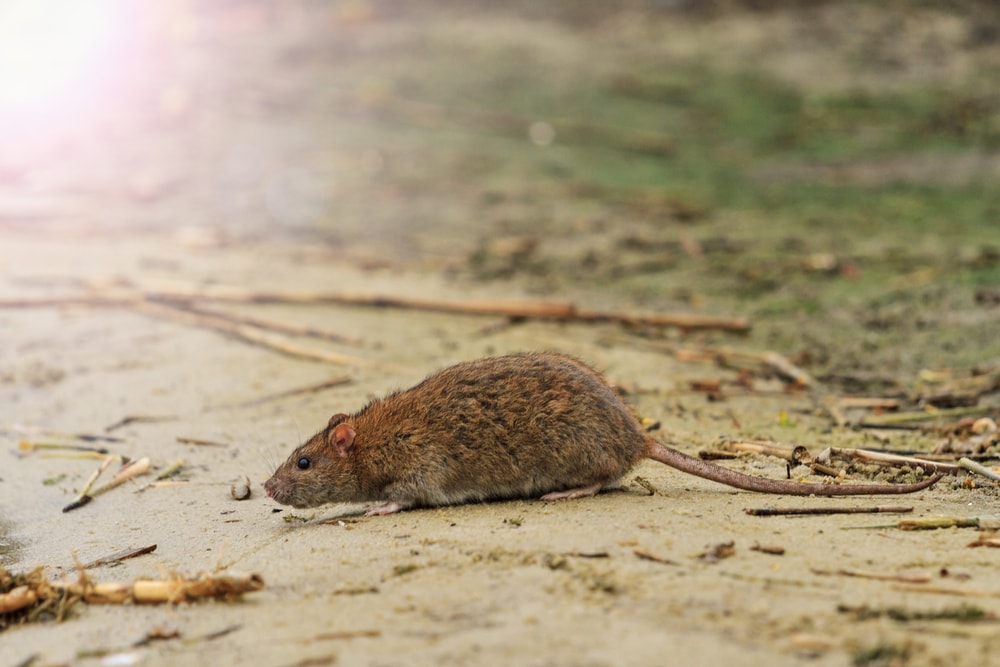Hantaviruses are a group of viruses carried by some rodents. Learning about these viruses, which rodents to look out for and how a person becomes infected can help you avoid exposure.

Some hantaviruses can cause a very rare but sometimes fatal respiratory disease called Hantavirus Pulmonary Syndrome (HPS). According to the Centers for Disease Control, HPS has been around since at least 1959.
What are the symptoms of Hantavirus Pulmonary Syndrome?
People who get HPS may show symptoms one to five weeks after they are exposed to infected rodents or their debris. According to the CDC, people infected with HPS will first have these symptoms:
- Fever
- Fatigue
- Severe muscle aches
About 50 percent of HPS patients also experience these early symptoms:
- Headaches
- Nausea
- Vomiting
- Diarrhea
- Dizziness
- Chills
- Stomach pain
Four to 10 days after the initial phase of illness, these late symptoms of HPS appear:
- Lungs fill with fluid
- Coughing
- Shortness of breath
If you’re experiencing these symptoms, the CDC advises that see your physician immediately and mention any rodent exposure. Fever, fatigue and muscle aches are also symptoms of the flu, but if you’ve been exposed to rodents and are also experiencing shortness of breath, you may have HPS.
How is Hantavirus Pulmonary Syndrome treated?
There’s no specific cure or vaccine for hantavirus infection. The CDC says that people whose symptoms are recognized and expertly treated earlier may respond better to treatment.
What rodents carry a hantavirus?
In North America, several kinds of rodents can give people a hantavirus that can cause HPS:
- Deer mouse
- White-footed mouse
- Rice rat
- Cotton rat
Not all individuals of these species carry hantavirus. Common rodents (house mice, roof rats, Norway rats) are not known to carry HPS.
How can you get Hantavirus Pulmonary Syndrome?
Anyone who is around infected rodents or their debris can get HPS. You don’t have to be sick to contract the disease. You can get HPS when you:
- Breathe in the hantavirus pathogen. This can occur when rodent urine or feces containing hantavirus are stirred up into the air by sweeping or vacuuming.
- Touch rodent urine, droppings or nest materials that carry hantavirus and then touch your eyes, nose or mouth.
- Are bitten by an infected mouse or rat.
People are particularly at risk for getting Hantavirus Pulmonary Syndrome when they:
- Improperly clean up rodent urine, droppings and nests.
- Clean a shed or cabin where infected rodents may have been present.
- Work in barns or other areas where infected rodents may live.
It's unlikely for you to catch HPS from another person or from a dog or cat. Dogs and cats don’t carry hantaviruses.
How can you help avoid catching Hantavirus Pulmonary Syndrome?
Keep all rodents out of your home
Because you may not be able to tell a cotton rat (that can carry a hantavirus) from a roof rat (that does not carry hantavirus), the best approach is to keep all rodents out.
Clean up rodent urine, droppings and nest materials properly:
- Wear rubber or plastic gloves, a respirator and unvented goggles.
- Spray a disinfectant on the rodent urine and droppings. Get the area very wet. Use a general-purpose household disinfectant that says “disinfectant” on the label or use a bleach and water solution. Mix 1 part bleach to 9 parts water.
- Soak the rodent urine and droppings for five minutes, and then wipe up with a paper towel.
- Mop or sponge the area with a disinfectant.
- Wash your gloved hands with soap and water or spray a disinfectant or bleach solution on your gloves before removing them.
- Wash your bare hands with soap and warm water after you remove your gloves.
Do NOT sweep or vacuum rodent urine, droppings or nests. Doing so could cause the hantavirus pathogen to go up into the air, where you can inhale it.
Use baited snap traps baited to catch rodents
Be sure to use the right sized traps, as some traps are designed to catch mice, while others catch rats. While baited snap traps may be the best way to catch rodents, these traps can be difficult to set correctly and pose safety and health hazards if not done properly. Proper and safe disposal can cause risks and problems as well. That's why it's best to leave rodent control to the experts.
Contact Terminix® today to safely trap and remove rodents from your home.



